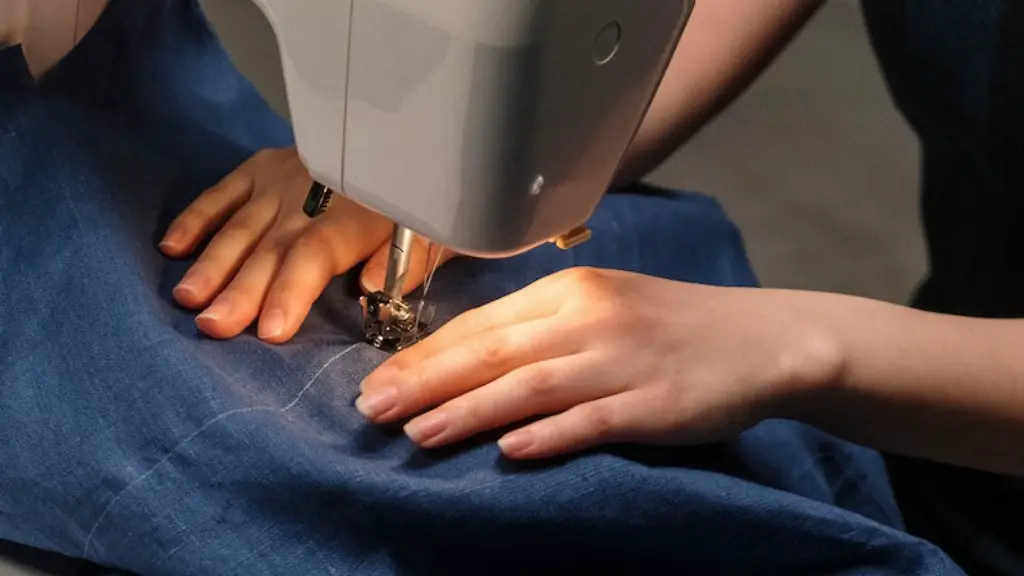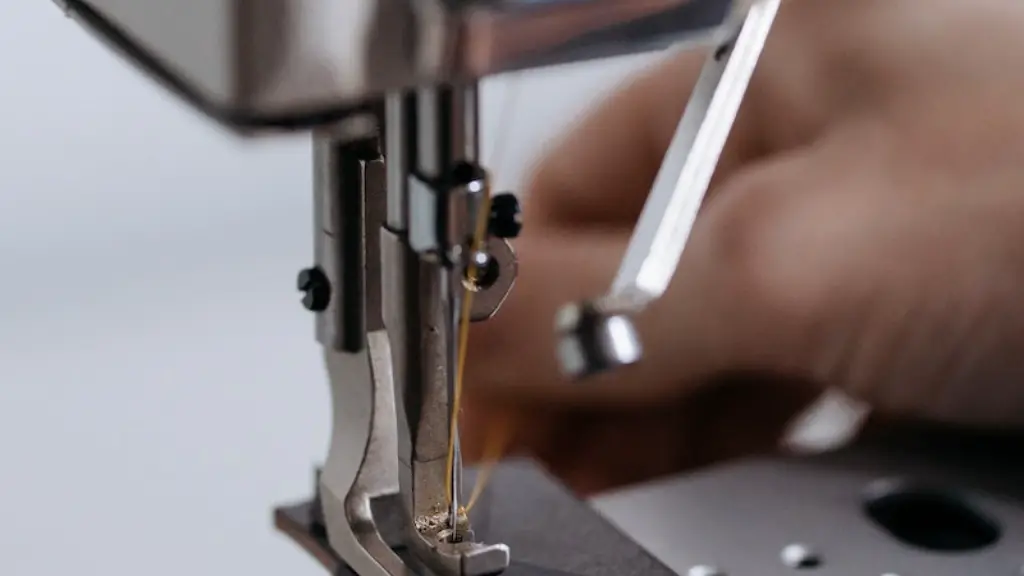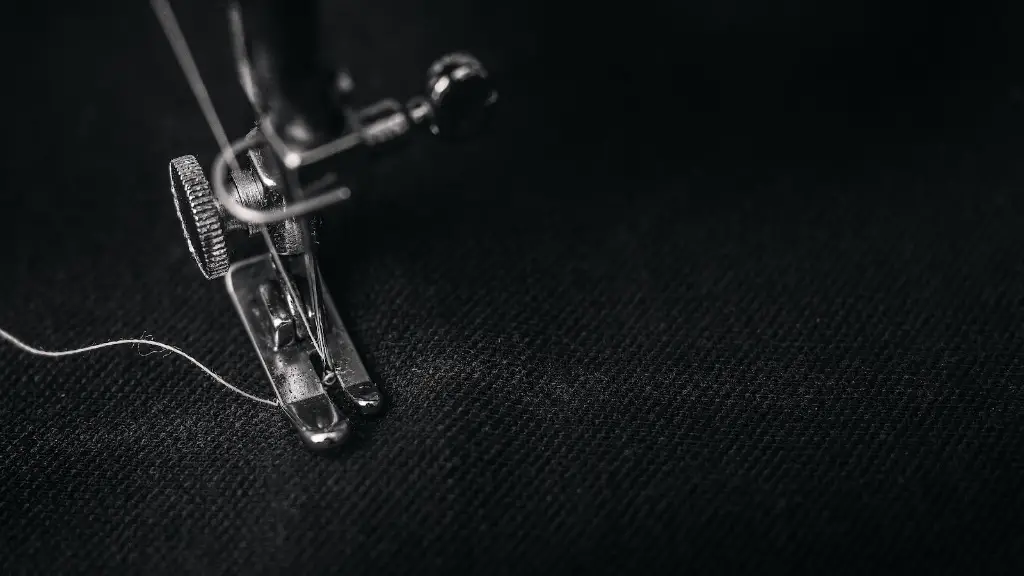What is a Thread?
A thread is a small length of yarn used in sewing. It can be made from a variety of materials, such as cotton, rayon, polyester and more. There are also different types of threads, each with its own unique qualities and uses. Thread is essential in any sewing project and it’s important to select the right kind for the job.
Types of Thread
The most common types of thread used for sewing by hand or on a machine are cotton, polyester, and rayon. Each of these materials has its own unique qualities and benefits, so it’s important to consider which type of thread is best suited to the project you are working on.
Cotton thread is known for its strength and durability, making it a great choice for projects that will be under a lot of stress or strain. It also holds better in the bobbin, making it a good option for faster sewing. On the other hand, cotton thread has low elasticity, so it can be prone to breakage when used on heavier fabrics.
Polyester thread is the most popular choice among sewers due to its strength, durability, and resistance to fading. It has excellent elasticity, making it ideal for tight stitches on heavier fabrics and for items that require stretching. It’s also made from synthetic fibers, so it’s resistant to both fading and damage from sunlight and weathering. The downsides of polyester thread are that it can be a bit more expensive than other types of thread and it is not ideal for use on delicate fabrics.
Rayon is the most expensive type of thread and it is made from cellulose fibers, making it extremely strong and flexible. This type of thread is ideal for intricate stitching on heavier weights such as jeans and denim, however, it can be more difficult to find. It also tends to be more costly than other types of thread.
What Thread to Use for Sewing Machines
When it comes to choosing the right thread for your sewing machine, it is important to consider the type of fabric you will be sewing, the speed of the machine, and the type of stitches you will be making. Since most machines perform best with thread that is slightly thicker than hand-sewn thread, heavier threads such as polyester are typically recommended.
For lightweight fabrics, polyester or rayon thread is the best choice as it has a bit more elasticity than cotton and is less likely to break when sewing a high number of stitches. For heavier fabrics, polyester offers the strength, longevity, and flexibility needed to handle the extra strain. Rayon is also a great option for heavier fabrics, however, it can be more difficult to find and more expensive too.
When selecting the thread for your machine, it is important to consider the speed at which you will be sewing. For machines with high-speed settings, it is best to use a thread that is capable of withstanding the pressure of the stitches without breaking. Polyester and rayon are made from synthetic fibers, making them more resilient and more capable of handling the extra force.
Color & Color Fastness
When choosing thread for a sewing machine, it is important to consider the color of the thread as well. Cotton and rayon threads are more prone to fading over time than polyester and therefore, it is important to select a thread that is colorfast. This means that the color will remain the same over time even when exposed to sun and weather.
It is also important to consider the color of the fabric the thread will be used on. For example, if the fabric is lighter in color, then it is best to use a thread that is the same or similar in color. This will help to reduce any risk of fading over time and will also help to ensure that the fabrics don’t clash.
Other Considerations
When choosing thread for a sewing machine, there are a few other factors to consider too. For example, the thickness of the thread can impact the quality of the stitches, so it is important to choose one that is the correct weight for the fabric you are using. Additionally, the temperature of the machine can impact the quality of the stitches, so it is important to consider the temperature range of the thread before purchasing.
Caring for Thread
Once you have chosen the best thread for your sewing machine, it is important to take care of it in order to ensure that it lasts as long as possible. Cotton and polyester threads will last longer if they are properly stored and kept away from light and humidity. Additionally, it is important to make sure that the threads are not excessively bent during storage or use.
When to Change Your Thread
It is important to check the quality of the thread regularly when sewing with a machine. If the thread starts to show signs of wear and tear such as fraying or knotting, then it is time to replace it. Additionally, depending on the fabrics used, the threads may need to be changed more often as well.
Types of Bobbins
The type of bobbin used in the sewing machine can also impact the quality of the stitches, as some threads require a specific bobbin type. Different types of threads have different levels of tension and require a different weight of bobbin. It is important to pay attention to the manufacturer’s instructions when selecting a bobbin for the thread.
Alternatives to Thread for Sewing Machines
In some cases, a thread may not be necessary for a sewing machine. Instead, a variety of adhesives and tapes can be used to secure two fabrics together, as these items can be much easier to apply and remove. Additionally, if the project involves a lot of fabric or heavy fabrics, then a thicker strong adhesive such as a glue gun can be used to achieve the same effect.
Difference Between Machine Sewing and Hand Sewing Threads
When it comes to machine sewing thread, the thread is generally thicker and more resilient than that used for hand sewing. This is because the machine needs to be able to handle the additional pressure and tension of the stitches. As a result, threads used for machine sewing are more durable and are better equipped to handle high-speed settings with heavy fabrics.
When hand sewing, a much finer and more delicate thread is needed as the pressure and tension is less and the fabrics are usually a lot lighter. In addition, hand-sewn thread needs to be able to slide through the fabric with ease in order to achieve a clean, consistent stitch.
The Bottom Line
Choosing the right thread for a sewing machine is essential to achieving a clean, sturdy finish. It is important to consider the type of fabric, the speed of the sewing machine, the colors of the fabrics, and weight and type of thread when selecting the ideal thread for the project. Polyester is the most popular choice due to its strength and elasticity, however, cotton and rayon can also be used. It is also important to ensure the machine is properly set up and the thread is stored correctly in order to extend its life.


